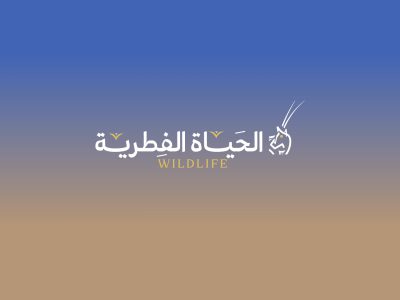as Told by Mohammed Al-Qahs
In times of scarcity and hunger, local communities practiced what we now recognize as sustainability. Despite the abundance of wildlife, they followed self-imposed regulations and methods for environmental stewardship. These communities successfully implemented sustainable practices long before the advent of writing or media. They respected the environment, revered nature, and set clear rules and norms for managing their resources, defining specific locations and times for hunting and other activities. Unlike today, where hunting is often seen as a leisure activity, it was once a necessity for survival, not a luxury.

The Tradition of Voluntary Abstention
Reflecting on these traditions, storyteller Mohammad Al-Qahs recounts how tribes in the Kingdom followed unwritten social laws to protect nature from human exploitation.
Al-Qahs explains the practice of voluntary abstention from hunting during breeding seasons. According to a story passed down from his father, this practice began with a moment of deep regret experienced by a hunter from a southern Saudi tribe. One day, the hunter set out with his rifle and, spotting a female ibex, fired a shot. But as he approached his catch, he was horrified to see the ibex’s young nursing from their now lifeless mother.
This moment of regret changed the hunter’s life. He abandoned hunting and made it his mission to raise awareness of the consequences of such actions. He approached the tribal chief and shared his experience. Moved by the story, the chief established a custom, known as ‘Al-Hajer,’ a complete halt to hunting during the breeding season in protected areas.
This act of compassion grew into a broader tradition of protection within the community. As Al-Qahs explains, ‘Al-Hajer’ is similar to what we now call a “ban,” placing restrictions on hunting and grazing during specific times of the year to allow wildlife to thrive.
The First Protected Areas: Hima
Al-Qahs further explains that tribes historically set up their own versions of protected areas, referred to as ‘Hima,’ a term akin to what we now call protected areas. One such area in the south of the Kingdom is known as ‘Al-Manqa’a’ or ‘Al-Asha.’ When it rained, the community would declare ‘Al-Hajer,’ prohibiting herders from entering the area for a month or two to allow the grass to grow and flourish.
The declaration of ‘Al-Hajer’ was a serious event, announced in markets with the firing of two shots from a rifle. This signaled the beginning of the restriction. Once the period ended, a phrase was declared: “We have permitted,” signaling the allowance to return. Each tribe had its own specific rules and timing for ‘Al-Hajer,’ and these customs were deeply respected.
Consequences for Violating Al-Hajer
Those who violated the ‘Al-Hajer’ restrictions faced social and financial penalties. According to Al-Qahs, violators were boycotted by the community. They were not allowed to enter markets, and no one would trade with them, turning them into social outcasts until they complied.
Fines were also imposed. For instance, someone who unknowingly entered a protected area was fined two sheep if they had sheep or a calf if they had camels. Those who knowingly violated ‘Al-Hajer’ faced harsher penalties, such as the confiscation of property. In some cases, up to a tenth of their livestock was taken as punishment for their disregard of the rules.
These penalties ensured the community’s respect for the regulations, all of which were rooted in what we now refer to as sustainability. The community believed in the inherent value of wildlife, often saying, “Where are you going? Don’t destroy it.” This phrase urged people not to eradicate animals that enhanced the natural beauty of life, from rabbits to various birds.
A Call to Preserve Wildlife
Al-Qahs carries with him the memory of these traditions, emphasizing the need for continued respect for the environment. “The earth is adorned with trees and wildlife,” he says. “We must preserve them. We are no longer in need of hunting for survival, so hunting should not be treated as a luxury pastime as it is today.”
He questions, “Why not let birds and animals like ibexes and deer live freely?” Reflecting on the past, Al-Qahs recalls how predatory animals, such as the Arabian leopard and the hyena, were once common but have now disappeared. “It’s been 30 to 40 years since we’ve seen a leopard. Ibexes, which once filled the mountains, now only live on the highest peaks. Even gazelles, once abundant in the Empty Quarter, are no longer seen in herds.”
Al-Qahs advises modern hunters to respect wildlife and the treasures it holds. “These resources must not be squandered,” he urges. He goes further, highlighting how careless actions, like driving over grass before it has a chance to grow after rain, harm the environment. He calls for the reapplication of the principle of ‘Al-Hajer’ to protect the environment for future generations.




